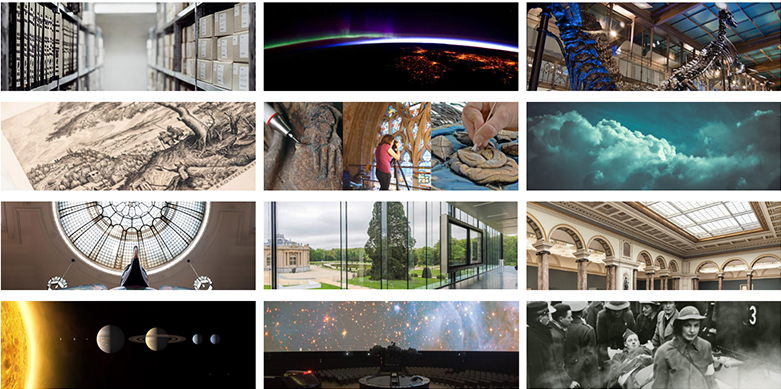How we work
Who may use our services?
Service free of charge for the FSIs.
In principle, our service is free of charge for all FSIs. Depending on the resources and the questions to be addressed, through mutual consultation, a contribution in kind (deployment of manpower, photocopies, etc.) or to operational costs may be required.
As the Visitors Observatory conducts research on the relationship between the FSIs and their (potential) audience, all departments which have a direct or indirect role in working with the public may find our services useful.
It is certainly not the case that this involves only those departments within the various FSIs with the most obvious connection, such as the communication services or the Museology and Exhibition departments. For example, the libraries, education departments, reception services, scientific departments or even the technical services may call upon our expertise and support in the area of evaluation, and audience or user research.

What can we do for you?
We are specialised in the field of “visitor studies” and our expertise is primarily related to audience and user research for museums and other public institutions. Our “core business” consists of:
- Monitoring users and visitors of the FSIs (longitudinally)
- Carrying out ad hoc satisfaction research and evaluation of services and products provided by the FSIs (often exhibitions, but this may just as well include the functioning of the reception, the restaurant, etc.)
- Drawing up visitor profiles for museums, services or exhibitions
- In addition, we especially offer in-house knowledge of the FSIs and a substantial amount of (numerical) data
- Other audience and user research and research related to Museology
We are particularly specialised in quantitative research (chiefly surveys), but we also perform more qualitative work (in-depth interviews, etc.)
Given our expertise and our background, we have competency in a good number of research methods, but we are also aware that we may not always be able to cover the entire spectrum.
To the best of our abilities, we strive to keep our expertise up to date through regular training, knowledge exchange with other partners and by collaborating with other specialists in the field.
We are open for new methods and challenges and together with the client, we seek the most suitable approach.
Moreover, we prefer to avoid a one-way relationship and for each project, we actively seek your follow-up questions, suggestions and feedback. So please feel free to contact us. We would be happy to think along with you about specific problems and we are always ready to tackle new challenges!
How do we proceed?
There is no standard procedure (and it does not have to be a formal process by any means), but often, collaboration with us essentially involves the following process:
- Request for research: an application is filed via the representative of your institution at the semi-annual meeting of the advisory committee (click here to determine who your representative is on our advisory committee) or directly through us.
- Start-up meeting: in an initial discussion, the client formulates the problem to be addressed and the goal of the research. The Observatory is familiarised with the research context and discusses the research options, organisation and approach.
- Proposal of a plan of action: based on the necessary preliminary research (desktop research, visitor figures, possible previous research, etc.) and depending on the question to be addressed, the Observatory proposes a working hypothesis and a plan of action (project structure, timing, methodology, practical execution, etc.)
- Formalisation of the research project: the project is submitted to the advisory committee for approval.
- Execution of the research project: the research is carried out by the Visitors Observatory in close consultation with the client.
- Reporting: reporting on the research project to the client in the form of a report and/or presentation.
Types of collaboration
Broadly speaking, there are 4 ways to collaborate with the Visitors Observatory:
- Independent research: the Visitors Observatory receives a clearly defined assignment from the client and completes the entire research process independently. The Observatory is responsible for both the coordination and the execution of the research.
- Co-research: the Visitors Observatory and the client (potentially supplemented by a third actor such as a research institution, agency, student or trainee) jointly complete a research process. Some parts of the research will be carried out by the client-FSI (or third organisation) others by the Visitors Observatory. The Observatory coordinates the research and also carries out some parts of it.
- Consultancy: a FSI-service decides to conduct research independently. The FSI-service provides coordination and execution of the research and the Visitors Observatory is engaged to contribute input based on its expertise. In the past, this has generally concerned smaller-scale research.
- Outsourcing: The Visitors Observatory and the client FSI decide, after consultation, to outsource the assignment (due to the scale and/or lack of in-house expertise) to a research institution or a specialised agency. The Observatory coordinates the tender process and follows up the project jointly with the FSI in question.






